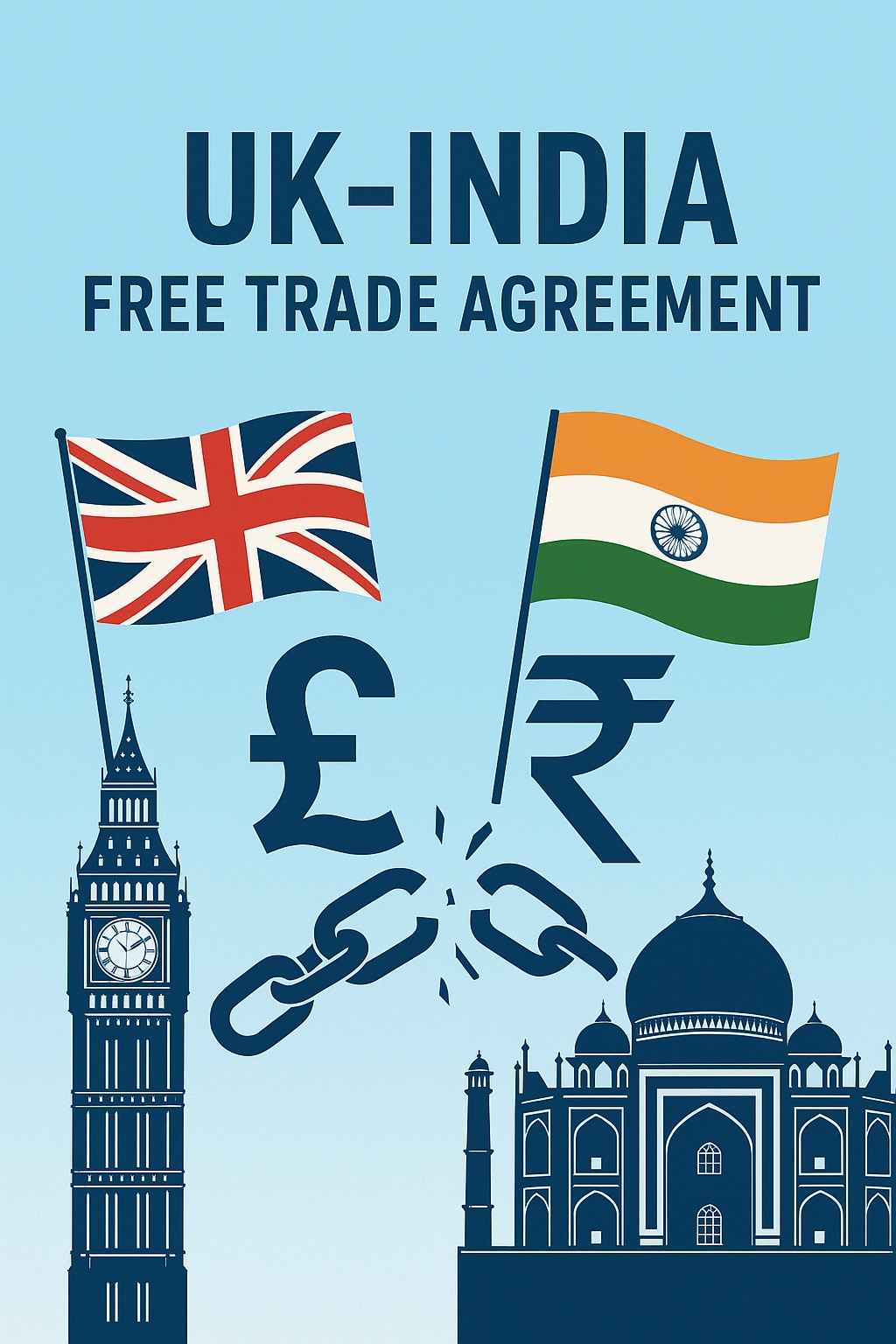The UK-India Free Trade Agreement (FTA) is a trade deal expected to increase bilateral trade between United Kingdom and India in a major way. FTA aims at reducing tariffs on 90% of the UK’s exports to India, such as whisky and automotive parts. On the other hand, Indian exporters get duty-free access to the UK market for 99% of their products, including textiles, marine products, and engineering goods. The agreement also aims to boost trade in services and facilitate the mobility of professionals, with potential to double the UK – India trade to US$120 billion by 2030.
The Success Chamber is positioned at a vantage point to help UK exporters enter the Indian market or existing exporters to further strengthen their reach, with years of experience on facilitating overseas companies from Europe and North America into the Indian market. A string and effective network of contacts amongst decision makers in Indian entities, influencers in the market and experts from all sectors and sub-sectors available to hand-hold UK companies in their aspirations to have a foothold and further expand into the Indian market.
From the perspective of UK exporters, there are some big winners in terms of sectors, products, services and technologies which have a bright future in the Indian market.
1) Premium spirits (Scotch & gin)
India will reduce tariffs by half immediately (approx. 150% to 75%), with this reduction trajectory to become approx.40% within 10 years, making premium UK brands far more competitive despite Indian state excise layers.
2) Automotives & EVs (finished cars under quota)
India will cut car tariffs from more than 100% to 10% – under a quota that liberalises over time, unlocking a viable price point for niche, high-value UK models and EVs.
3) Aerospace, medical devices, high-end optics & advanced manufacturing
Staged/zero tariffs for aircraft, engines, parts, and medical/optical instruments, plus customs simplification. These are classic UK strengths and benefit immediately from duty cuts and clearer border rules.
4) Electricals, machinery, and precision components
Broad Indian tariff cuts across electrical circuits, machinery and components, with improved documentation and rapid release at customs, reduce cost-to-serve into India’s fast-growing manufacturing base.
5) Food & drink (selected lines)
Besides spirits, reduced duties and streamlined access for biscuits, salmon and specialty foods create room for premium UK labels in urban Indian retail and Hotel, Restaurant, and Catering industry.
6) Services exports (business, financial, legal, education, architecture / engineering, creative/tech)
A deep services package with expanded business-mobility routes (business visitors, intra-corporate transferees, expansion workers; widened eligibility for contractual service suppliers/independent professionals) lowers friction to deliver and win work. Digital trade disciplines add certainty.
7) Government procurement in India
First-time, legally guaranteed access for UK suppliers to parts of India’s central government procurement market (tens of thousands of tenders annually), with commitments on fairness and transparency – opening doors for UK engineering, consulting, health-tech, clean-tech and ICT.
Macro uplift for UK
HM Government’s impact assessment estimates approx. £400m p.a. tariff savings at entry into force (rising toward approx. £900m after full staging) and a long-run UK GDP gain.




